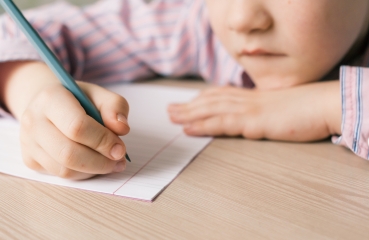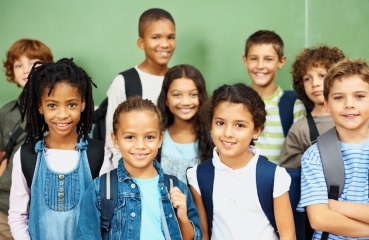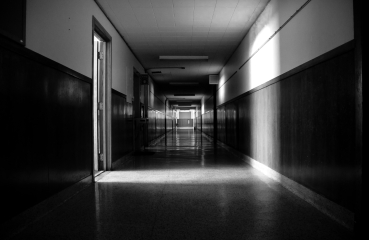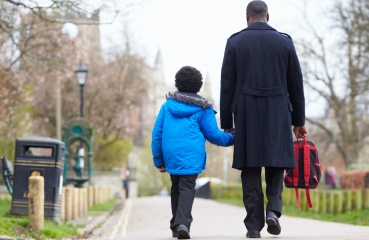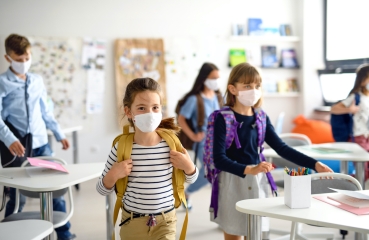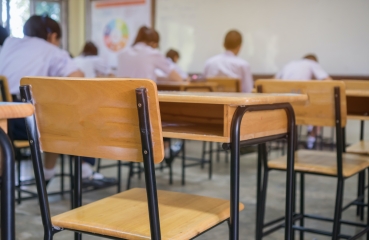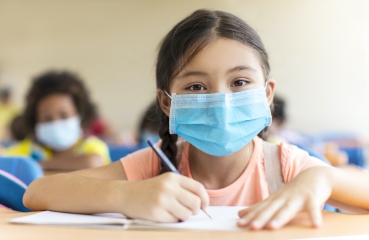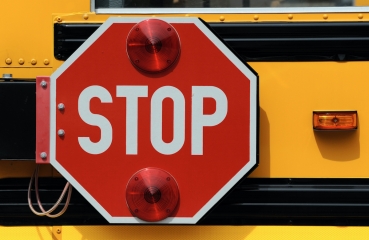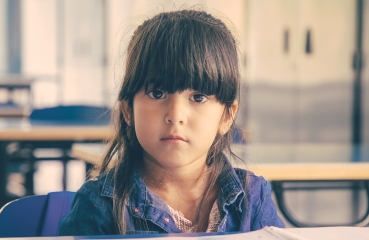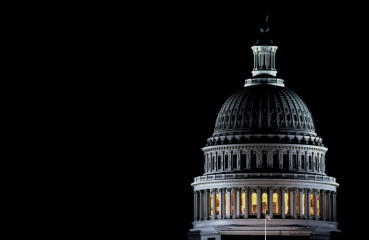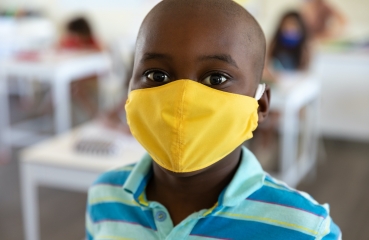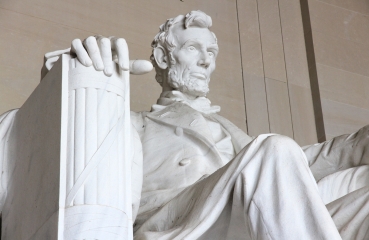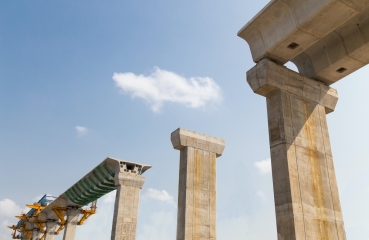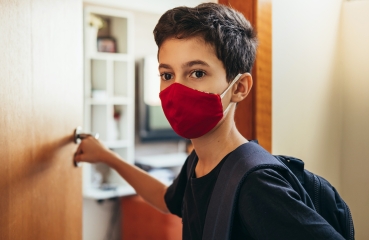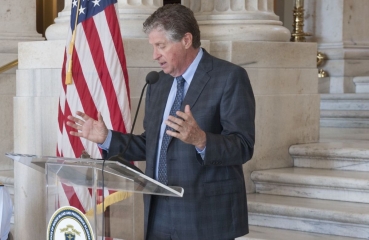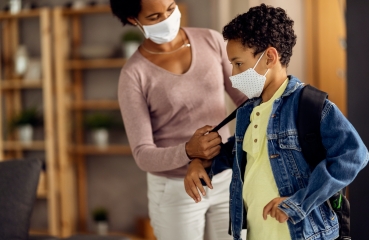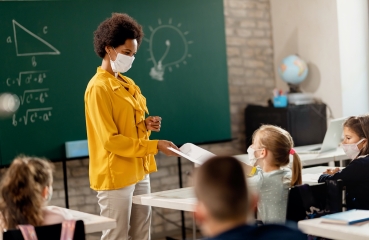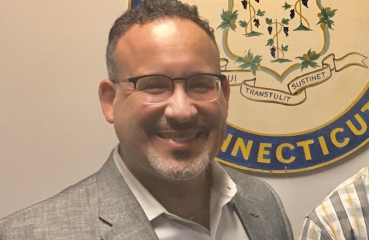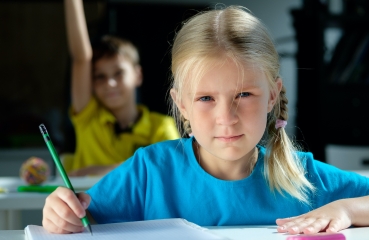How schools should spend federal Covid-19 aid
Brandon L. WrightWith two big rounds of Covid-19 aid having been sent to schools and at least a third on the horizon, leaders must make difficult decisions, especially as more schools reopen and the pandemic rages on. How can they use this money to best mitigate risk, facilitate effective hybrid learning, and most importantly, get kids back on track after suffering substantial learning losses?
Literacy is equity
Robert PondiscioAny discussion about “equity” in education that is not first and foremost a discussion about literacy is unserious.
How much does student motivation affect student outcomes?
Adam Tyner, Ph.D.Why do some students succeed and others lag behind? This is, of course, a central question in education policy.
What drives racial gaps in special education identification?
Melissa GutweinRecent work published in the Journal of Labor Economics examines how school segregation may be related to racial gaps in special education identification.
How ya gonna keep ‘em back in that old school?
Chester E. Finn, Jr.If the pandemic vanished tomorrow and all U.S. schools instantly reopened in exactly the same fashion as they were operating last February, how many parents would be satisfied to return their daughters and sons to the same old familiar classrooms, teachers, schedules and curricula? A lot fewer than the same old schools and those who run and teach in them are expecting back!
How anger over Covid closures can fuel the school choice movement
Robert PondiscioThe father testifying before Virginia’s Loudon County school board
Opening schools can help heal our divided country
Dale ChuLast month, I weighed in on the renewed calls for civics education after January 6’s disgraceful assault on the U.S. Capitol. While teaching civics would be a good start, schools are critical institutions of civil society regardless of whether they teach civics well or at all.
The negative effects of student absenteeism: From bad to worse in a pandemic
Victoria McDougaldPredicting the effects of pandemic-related disruption on students’ education is a vital but fraught pursuit.
Predicting students’ academic trajectory from third grade test scores
Olivia PiontekThanks to the No Child Left Behind Act, annual testing in math and reading for students in grades three through eight became mandatory in every state beginning in 2005.
Rick Hess and Ian Rowe discuss 1776 Unites and efforts to promote a vision of a unified America
Frederick M. Hess, Ian RoweEditor’s note: This interview was first published by Rick Hess on his blog with Education Week, Rick Hess Straight Up.
Unexpected innovation: Charter schools and novice teacher development
Bill WaychunasLet’s start with a little game. Trust me, it will be helpful if you play along… Grab a piece of paper and a writing utensil. Complete the following sentence: First-year or early-career teachers typically struggle most with… (Try to come up with a few answers.)
What to do about the Covid kindergarten cohort?
Michael J. PetrilliEditor’s note: This is the third in a series of posts about envelope-pushing strategies that schools might embrace to address students’ learning loss in the wake of the pandemic.
Don’t let bad habits become the “new normal”
Robert Pondiscio, Julie FitzFrom the start of the pandemic, I’ve resisted talk of the “new normal” in education for two reasons. First and most importantly, there’s an unquenchable thirst for the old normal, and increasingly so as disruptions to traditional patterns of schooling approach the twelve-month mark.
Merit aid and college outcomes
Amber M. Northern, Ph.D.For many years, the Susan Thompson Buffett Foundation (STBF) in Nebraska has provided full-ride college scholarships to eligible high school graduates in the state. This randomized study examines how such largesse affects higher education enrollment and degree completion.
3 ways instructional materials help to address unfinished learning in math
Tim TruittA few months ago, I wrote an article about Covid-19 learning loss and t
Advice to the Biden administration on improving special education. More money isn’t enough—or most important.
Nathan LevensonAmong the many reasons equity advocates are celebrating new leadership in Washington is the hope that President Biden and Secretary of Education-designate Cardona will do more to help students with disabilities. These kids struggled mightily in school before the pandemic, and no group of students has suffered more from remote and hybrid learning.
What the Capitol riot means for civics education
Dale ChuStill reeling from the assault on the Capitol and the subsequent impeachment effort against Former President Trump, the education sphere’s attention has understandably returned to the need to resuscitate the teaching of civics and history. If schools did a better job of grounding our students in the principles of a free society and a basic understanding of U.S.
One option for giving children their pandemic year back: Add an extra year to elementary school, forever
Michael J. PetrilliEditor’s note: This is the second in a series of posts about envelope-pushing strategies schools might embrace to address students’ learning loss in the wake of the pandemic.
The pandemic dims a beacon of school improvement
Josh BootsFor the past decade, Washington, D.C., schools have shone as a success story, with achievement for all students rising steadily in elementary and middle schools and more quickly than the national average.
The civics and history lesson our children need right now
Robert PondiscioHistory, well taught, equips students with the ability to see through current crises. Civics, well taught, fosters in every heart an investment in democratic processes and a respect bordering on reverence for the rule of law.
Without tests in 2021, we’ll never know which schools met the Covid-19 challenge
Michael J. PetrilliThe Covid-19 pandemic has run roughshod over so much of our education system, closing schools, sending students home to try to learn remotely, and obliterating last year’s summative state tests.
Charter schools are a Band-Aid when a heart transplant is needed
Marc TuckerThis post is adapted from an email conversation between Marc Tucker and Fordham’s Michael J. Petrilli, in which Marc was responding to Mike’s recent article, “The case for urban charter schools.” It also appeared in Fordham’s Flypaper newsletter.
Eyes on the street: Reducing crime and boosting school attendance
Amber M. Northern, Ph.D.Reducing student absenteeism is a key goal in many schools’ efforts to improve academic outcomes. The reasons that students skip are myriad—indifference to school, illness, jobs, caring for siblings, and more—which means that there is no one solution.
Dan McKee, poised to be Rhode Island’s next governor, is a model of how to improve schools for all children
Erika SanziRhode Islanders just saw their governor, Gina Raimondo, tapped to become President-elect Biden’s Secretary of Commerce.
Give disadvantaged children their pandemic year back
Michael J. PetrilliAs the world struggles through some of the darkest days of the pandemic, and more schools shift back to remote learning, we at the Thomas B. Fordham Institute are spending most of our time thinking about what comes next: educational recovery.
Explicit teaching vs. constructivism: The misadventures of Bean Dad
Robert PondiscioNearly every day, social media plucks some poor, anonymous face in the crowd from obscurity and makes him famous. If you’re making New Year’s Resolutions this year, one should be never to be that guy.
Covid-19 facts and figures will not build trust with terrified parents
Erika SanziIt is becoming increasingly clear that pundits and well-meaning education advocates fail to fully grasp the deep distrust that some parents have long had for their children’s schools.
It’s not news that Miguel Cardona is a charter school authorizer—and that’s worth celebrating
Alex MedlerPresident-Elect Biden has confirmed that he will nominate Dr. Miguel A. Cardona to serve as the next U.S. Secretary of Education. He appears to be a prudent choice for Biden, earning support from teachers unions and education reform groups, including charter operators. Cardona is the current Connecticut Commissioner of Education.
What if everything we believe about education is a lie?
Robert PondiscioWhat if we can’t change at scale the distribution of academic outcomes among disparate groups of students? What if our hope that public education can erase inequality is in vain? If these things were true, how would what we ask of schools—and how we measure their success—change?



